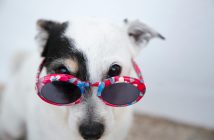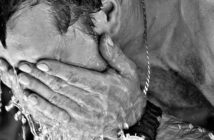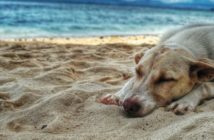Did you know that on some specific days every year during the summer, Chinese people are following ancient traditions in what they eat and what they do? Maybe your friends haven’t told you about these traditions. They probably just think you won’t understand and will invite you to eat for no particular reason in your mind. But if you’re invited to eat on one of these days or find you’re eating cuisine from one of these sets, impress your Chinese friends with your new cultural knowledge.
The Chinese year is broken up into 35 sets of the cyclical Ten Heavenly Stems that represent ten different elements. They repeat themselves every ten days – hence so many sets in a year! The Ten Heavenly Stems are an ancient Chinese cyclic numeral system and were first used for recording the dates and time in Shang Dynasty (1046-1600BC), but actually they were used as early as about 2,700BC. Geng(庚) is the seventh element of the Ten Heavenly Stems. See here for more information about the Ten Heavenly Stems.
The traditional saying in China “Dog Days” or “Hot summer days” refers to a special time period in summer between Mid-July to Mid-August when the temperature rises to the highest in the year. In Chinese, we call these days Fu Tian(伏天) and there are three periods of dog days in one year. After the summer solstice and during the third set when the Geng (庚日) day hits, the first set of dog days begins; the fourth occurence of Geng is the second Fu, and the first Geng in autumn is the last of the dog days, according to the Ten Heavenly Stems.
The first and last dog days have ten days while the second dog day is around 10 to 20 days. For the year of 2016, the first set of dog days is from July 17 to July 26; the second set is from July 27 to August 15; and the last set is from August 16-25. Furthermore, the old saying of “Dog Days” began during the Qin (207-221BC) and Han Dynasties (202-220BC).
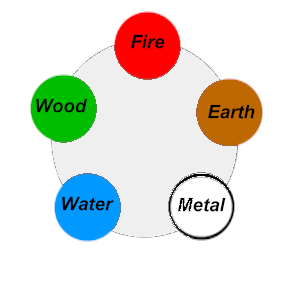
In ancient times, the saying of the Five Elements – water, fire, metal, wood, earth is very famous. During Qin Dynasty, people believed that the summer days represent fire, and the Geng is metal. Since fire is the greatest enemy of metal, during hot summer days, Geng must hide away “under the ground.” This is the meaning of Fu Tian– Fu means to hide under the ground. If you are with me so far, that’s great! Your patience will prove to be totally worth it if you read on! So what are some of the customs and traditions during Dog Days?
Food
The First Fu (初伏)
During the first day of the First Fu, Chinese people will often eat dumplings. Why? In the past, farming and food production was hit with tons of problems due to lack of facilities. This resulted in people often making themselves some light food with less oil like noodles, dumplings, and baked pancakes. Some of the famous types of dumplings are boiled dumplings, fried dumplings, and guotie dumplings. Usually the stuffing consists of meatballs, pumpkin, zucchini, mushroom, and Chinese chives. Another fun fact is that guotie dumplings can also be called futie dumplings, which means good luck. 伏(fu) has the same pronunciation as 福 (fu), which means wonderful luck in the coming days.

The Second Fu(中伏)
The second Fu is always among the hottest days, so families in old Beijing always have noodles for the first day. There are many ways to make noodles in traditional China, including “Butterfly Noodles” from the very old days, and “Suo Noodle”(索面) during the Bei Song Dynasty. But at the same time, many people will wonder why people choose to eat very hot food especially during the hottest days. This is because there’s a saying from Chinese traditional medical doctors that encourages people to use hot food to resist the hotness of the season and keep it under control. Also, the second Fu is the time when wheat is harvested, and people will often make noodles out of wheat that would make them sweat and chase away diseases. Old Beijing people will usually have sautéed noodles with minced meat, and sesame noodles with chopped cucumber, slices of carrots, and crushed green garlic. Noodles with soup are also popular during the second Fu.
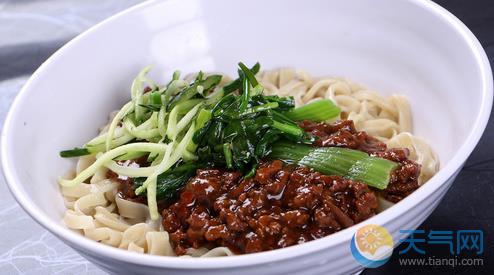
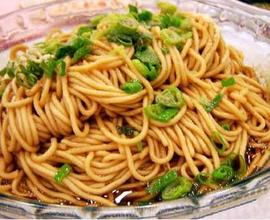
The Third Fu(末伏)
The Third Fu is always cooler than the second Fu because it is in autumn, and people will have baked pancakes for food. In old Beijing, there are many kinds of pancakes, but mostly multi-layered ones. Families will usually bake chopped green onion pancakes, sweet sesame ones, and lotus pancakes along with mung bean soup or porridge. The traditional Chinese cold noodle is also a light dish to have during the Third Fu.

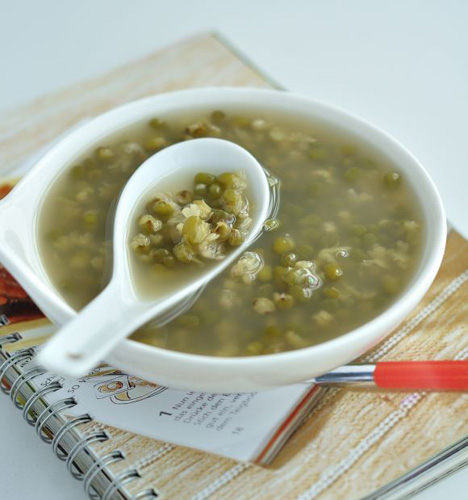
My Family Traditions
In my family, my parents and I often do not remember the tradition that most people are following in Beijing. The only people who remember the custom are my grandparents. You know how it works right? The older generation always has a thing about following the old tradition because it shows respect to Chinese culture. Sometimes I go straight to my grandparents and ask if we can take the whole family to go out for lunch or dinner together, sometimes they say yes, sometimes they are hesitant, but they are always very reluctant and forbid us to go if it is a day to follow the tradition.
Here’s what’s likely to happen if I say I want to eat rice for dinner, my grandparents will say, “Oh no dear, today is the first day of the second Fu so we need to have noodles.” Therefore, the rest of my family has no choice and needs to follow the custom. Usually, on the first day of the first Fu, my family will eat dumplings with Chinese chives and meatballs, and we would always boil them to make them taste better for the next meal.
On the second Fu, we would have noodles with soup in it or cool noodles because it is in the hot summer- these types of noodles are my favorite so I dare say the second Fu is the best day in which I don’t need to force myself to eat something different!
On the first day of the last Fu, my family will often bake some pancakes but sometimes we just choose to have rice because it is considered to be part of the tradition. Although my family would not follow the tradition that strictly without my grandparents, I am actually quite grateful for it because without them, I would never have learned this aspect of my own country’s great culture!
Here are some small tips that you could use during Dog Days
A Few Tips
Usually during the Dog Days, people will have warm water for bathing that’s below the normal body temperature in order to cool down and relax the body. For drinks, people normally suggest to drink haw soup, watermelon juice, and Tremella soup. Light foods that are good for Ying Chi are the best during hot days, like crucian, shrimp, different kinds of mushrooms, and Job’s tears.
Vitamins are also needed because the expelling of vitamins in our body replaced by new nutrients happens much quicker during hot days, and people should always select food and fruit with vitamins and calcium like watermelon, cucumber, tomato, and foods like small, dried shrimp. See here for more tips during “Dog Days”.


